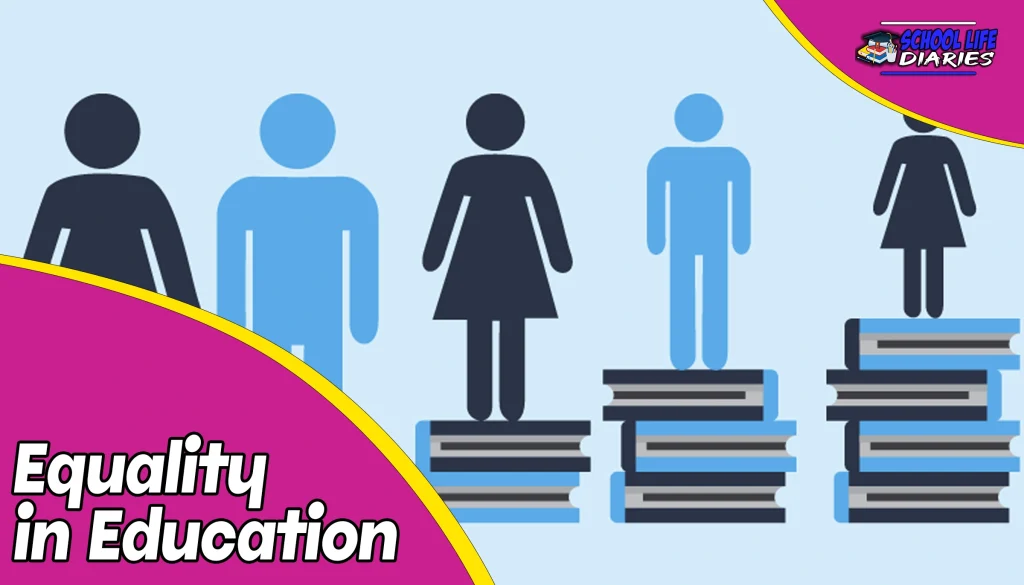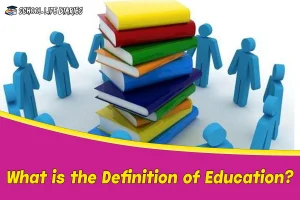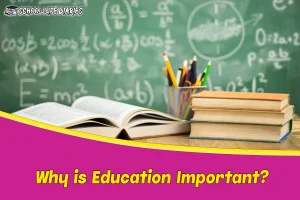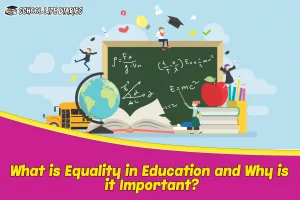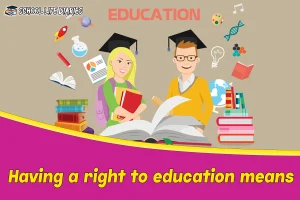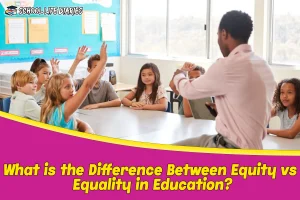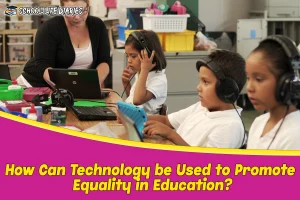Education is a fundamental human right and a powerful tool for personal, societal, and economic growth. It opens doors to opportunities, fosters critical thinking, and enables individuals to lead fulfilling lives. Achieving equality in education is a paramount goal, aiming to ensure that every individual has an equal opportunity to access and benefit from a high-quality education, regardless of their background or circumstances.
In this comprehensive article, we will explore the definition and importance of education, delve into the significance of equality in education, discuss the right to education, identify the challenges hindering equal educational opportunities, propose strategies for achieving educational equality, differentiate equity from equality, highlight the benefits of focusing on equity in education, discuss the role of technology in promoting educational equality, and showcase successful initiatives that have made strides in leveling the educational playing field.
What is the Definition of Education?
Education is a multifaceted and dynamic process that encompasses the acquisition of knowledge, skills, values, beliefs, and attitudes through various forms of instruction, experience, and interaction. At its core, education is the deliberate and systematic transmission of information and learning from one individual or group to another. This process takes place within formal institutions like schools and universities, as well as through informal channels such as life experiences, self-study, and interactions with the environment and society.
Education is not limited to traditional classroom settings; it extends to practical, hands-on experiences that nurture critical thinking, creativity, problem-solving, and adaptability. It equips individuals with the tools to navigate the complexities of life, enabling them to make informed decisions, engage with society, and contribute positively to their communities.
Why is Education Important?
Education holds immense importance in shaping the trajectory of an individual’s life and society as a whole. Here are some key reasons why education is crucial:
- Empowerment: Education empowers individuals by providing them with knowledge and skills, enabling them to make informed decisions and advocate for their rights.
- Socio-economic Development: A well-educated population drives economic growth and development, leading to higher standards of living and increased prosperity.
- Critical Thinking and Problem-Solving: Education fosters critical thinking, analytical abilities, and problem-solving skills, preparing individuals to navigate complex challenges effectively.
4. Social Cohesion: Education promotes understanding, tolerance, and social cohesion by exposing individuals to diverse perspectives and experiences.
- Health and Well-being: Education plays a vital role in promoting health and well-being, enabling individuals to adopt healthier lifestyles and access essential healthcare services.
What is Equality in Education and Why is it Important?
Equality in education refers to providing every individual, regardless of their socio-economic background, gender, ethnicity, race, abilities, or any other characteristic, with equal access to educational opportunities, resources, and outcomes. It aims to eliminate discriminatory practices and ensure that every person has an equal chance to reach their educational potential.
The importance of equality in education lies in its potential to:
- Promote Fairness: Equality ensures that educational opportunities are distributed fairly, leveling the playing field for all students.
- Foster Inclusivity: An equal educational system embraces diversity and inclusivity, creating an environment where everyone feels welcomed and valued.
- Enhance Educational Quality: When educational resources and opportunities are evenly distributed, the overall quality of education improves, benefiting society as a whole.
- Bridge Social Gaps: Educational equality can help bridge the social and economic gaps by providing disadvantaged individuals with the means to uplift themselves and contribute positively to society.
What Does it Mean to Have a Right to Education?
The right to education is a fundamental human right recognized by international conventions and treaties. It emphasizes that every individual, without discrimination, has the right to access quality education. The right to education includes the right to free and compulsory primary education, equal access to higher education, and the freedom to choose an educational institution.
Having a right to education means:
- Access: Ensuring that everyone has access to education without discrimination or barriers based on gender, socio-economic status, disabilities, or other factors.
- Quality: Guaranteeing that education is of a certain standard, providing knowledge and skills necessary for personal and societal development.
- Non-Discrimination: Preventing any form of discrimination in educational settings, ensuring equal opportunities and treatment for all.
- Compulsory Education: Requiring governments to make primary education mandatory and freely available to all children.
Problems of Equality in Educational Opportunities
Despite the recognized importance of educational equality, several challenges hinder its achievement globally:
- Socio-economic Disparities: Socio-economic disparities significantly affect access to quality education, with disadvantaged communities facing limited resources and opportunities.
- Gender Inequality: Gender bias often limits educational opportunities for girls, particularly in certain regions where traditional gender roles prevail.
- Discrimination and Exclusion: Discrimination based on ethnicity, race, disabilities, or socio-economic background can lead to exclusion and unequal treatment in educational systems.
- Inadequate Infrastructure: Insufficient educational infrastructure, including schools, teachers, and learning materials, particularly in rural or underprivileged areas, hinders equal access to quality education.
- Inequitable Policies and Practices: Existing educational policies and practices may perpetuate inequality, either by design or inadvertently, creating disparities in educational opportunities.
Strategies for Gaining Equality in Education
Achieving equality in education requires concerted efforts from various stakeholders. Here are key strategies to promote educational equality:
- Policy Reforms: Governments must enact policies that address educational disparities and promote equal opportunities, such as providing financial aid, scholarships, and incentives to marginalized groups.
- Investment in Infrastructure: Governments and organizations should invest in improving educational infrastructure, ensuring that every region has access to quality schools, teachers, and learning materials.
- Teacher Training and Development: Focusing on training teachers to be culturally sensitive and equipped to handle diverse student needs can mitigate biases and foster an inclusive learning environment.
- Community Engagement: Involving communities in educational initiatives fosters a sense of ownership and accountability, ensuring that local needs and challenges are adequately addressed.
- Awareness and Advocacy: Raising awareness about the importance of educational equality and advocating for policy changes can mobilize support and drive meaningful change.
What is the Difference Between Equity and Equality in Education?
Understanding the difference between equity and equality is crucial for effective educational strategies. Equality aims to treat everyone the same, providing the same resources or opportunities to all individuals regardless of their circumstances. On the other hand, equity strives to provide individuals with what they need to have an equal opportunity to succeed. It acknowledges that different individuals have different needs and tailors resources accordingly to level the playing field.
In education, equality would be giving all students the same textbooks, while equity would involve providing additional resources, such as extra tutoring or specialized materials, to students who need them to achieve the same level of success.
Benefits of Focusing on Equity in Education
Prioritizing equity in education offers several benefits:
- Tailored Support: Addressing individual needs ensures that students receive the specific assistance required for their academic success.
- Increased Access and Participation: Equity initiatives help break barriers, encouraging more students to participate in education, particularly those who may have been marginalized or excluded.
- Improved Outcomes: By addressing disparities, equity measures can lead to improved academic achievements and ultimately contribute to a more educated and skilled workforce.
- Long-Term Social Impact: A more equitable education system can break the cycle of poverty and create a more inclusive society with better opportunities for all.
How Can Technology be Used to Promote Equality in Education?
Technology can play a significant role in promoting educational equality by:
- Online Learning Platforms: Providing access to educational resources and courses online, ensuring that students, regardless of location, have access to quality education.
- Digital Inclusion: Bridging the digital divide by ensuring that all students have access to digital devices and internet connectivity for remote learning.
- Personalized Learning: Utilizing technology to tailor learning experiences to individual student needs, promoting a more equitable educational journey.
- Remote Teaching Opportunities: Allowing educators to reach students in remote or underserved areas through online teaching platforms, ensuring access to quality teaching.
What are Some Successful Examples of Initiatives Promoting Equality in Education?
Several initiatives and projects globally are actively working towards promoting equality in education. For instance, “Teach for All” is a network of organizations working to expand educational opportunities and overcome educational inequity. In India, the “Sarva Shiksha Abhiyan” (Education for All) program aims to provide quality education to all children, focusing on bridging gender and socio-economic gaps in education.
Conclusion: Equality in Education
Equality in education is not merely an aspiration but a fundamental human right and a cornerstone for a just, inclusive society. Education is the catalyst that propels individuals toward personal and societal success, enriching lives and empowering communities. The essence of educational equality lies in creating an environment where every individual has an equitable opportunity to excel academically and personally. Achieving this goal demands a holistic approach encompassing policy reforms, infrastructural improvements, community engagement, and innovative use of technology.
Several successful initiatives, such as “Teach for All” and “Sarva Shiksha Abhiyan,” demonstrate the potential and effectiveness of concerted efforts in promoting educational equality. These initiatives have made significant strides in breaking down barriers and empowering marginalized communities with education, thereby fostering a more equitable society.
In conclusion, achieving equality in education is an ongoing journey that requires commitment, collaboration, and continuous innovation. Education should not be a privilege but a fundamental right, a cornerstone of a more just and prosperous world. By prioritizing educational equality and leveraging collective efforts, we can build a future where every individual has an equal opportunity to thrive, contributing meaningfully to society and leaving a lasting impact on generations to come.

